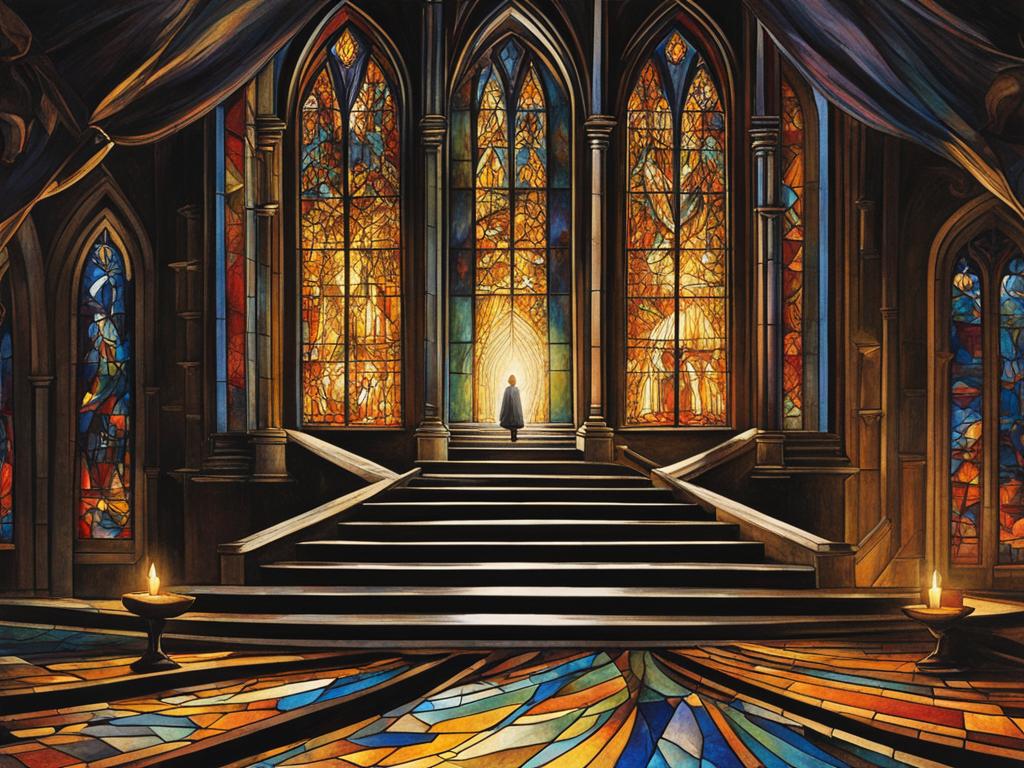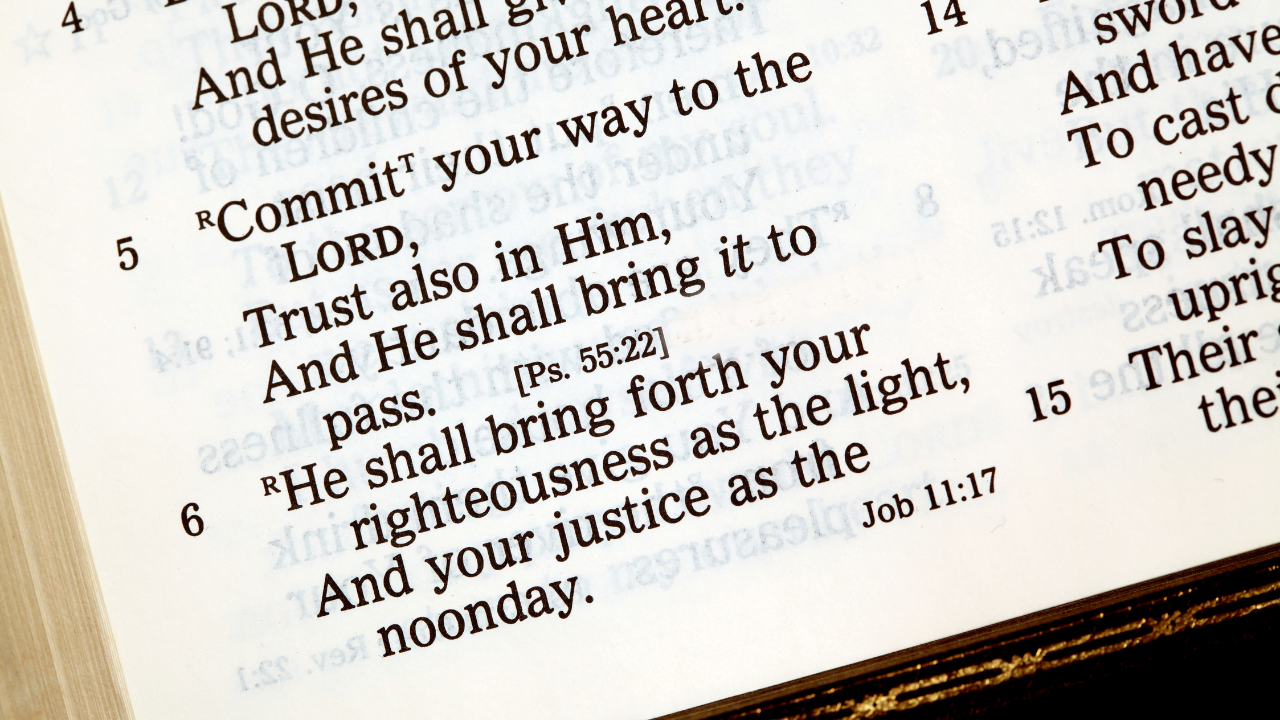No products in the cart.
Mystical Pathways: An Insightful Introduction to Christian Mysticism
This post contains affiliate links.
Examining Christian mysticism is a rich and complex tradition that provides a profoundly fulfilling spiritual journey. Christian mysticism enables us to set a path of genuine spirituality, establishing connections with the divine in ways that transcend conventional religious rituals in a world characterized by materialism and superficiality.
Christian mysticism encompasses a wide range of spiritual practices and teachings that seek to foster a direct and personal experience of God. It delves into the mysteries of God’s nature, the union of the soul with the divine, and the transformative power of divine love. Through contemplative prayer, meditation, and other spiritual disciplines, Christian mystics seek to cultivate a deep intimacy with God and uncover profound spiritual truths.
This article will explore the key figures, texts, and themes of the mystical tradition and demonstrate why their insights are relevant to the Church and individuals today. We’ll delve into the rediscovery of ancient mysticism in the twentieth century, the influence of pagan piety and prayer in antiquity, and the writings of mystics such as Dionysius the Areopagite, Gregory of Nyssa, and Meister Eckhart. We’ll also explore the legacy of the desert fathers, the practice of lectio divina, and the heart-renewing effects of engaging with sacred texts.
Christian mysticism invites a deeper and more meaningful encounter with God beyond mere intellectual understanding. It presents a path to encounter the divine in a way that touches the depths of our souls and transforms our lives. Whether you are already familiar with the mystical tradition or are curious to learn more, this article will provide a glimpse into the beauty and wisdom of Christian mysticism.
Takeaways:
- Christian mysticism offers a profound and transformative spiritual path.
- It seeks a direct and personal experience of God beyond traditional practices.
- Contemplative prayer and meditation are central to Christian mysticism.
- The mystical tradition has deep historical roots and continues to resonate today.
- Christian mysticism offers a more profound encounter with God and transforms lives.
The Mystic Journey: Exploring Christian Mysticism Through History
Join us on an immersive audio course presented by Fr. Harvey D. Egan, S.J., as we embark on a profound exploration of Christian mysticism through the lives and teachings of mystic figures who have shaped its rich history. Through this enlightening journey, we will delve into the profound spiritual journeys of Ignatius of Loyola, the enigmatic “apophatic” mysticism of the Cloud of Unknowing, and the timeless wisdom of mystic giants like Teresa of Avila, John of the Cross, Catherine of Siena, and Julian of Norwich.
The Mystic Journey goes beyond their stories, unraveling the depths of their teachings and the transformative experiences that led them to encounter the Divine in profound ways. We will also explore the lives and contributions of other mystic figures such as Francis de Sales, Angela of Foligno, and Karl Rahner, paving the way for a comprehensive understanding of Christian mysticism throughout history.
As we journey deeper into the mystical realm, we will encounter the cosmic mysticism of Pierre Teilhard de Chardin and the radical mysticism of Mother Teresa of Calcutta. Their profound insights and experiences will further expand our understanding of the divine and the unity of all creation.
From mystic figures who find God in all things to those who undergo visions and profound encounters, The Mystic Journey immerses us in the rich tapestry of Christian mysticism, offering profound insights and teachings that resonate deeply in our modern spiritual quest.
Stay tuned for the next section, where we explore Christian mysticism’s relevance and practical applications in our lives today.
The New Big Book of Christian Mysticism: Embracing the Mystic Life Today
In Carl McColman’s revised and expanded edition of The New Big Book of Christian Mysticism, we are invited to explore the transformative power of contemplative spirituality within Christianity. This profound exploration of mystic traditions reveals their relevance in our crisis-ridden world.
The book introduces the rich tapestry of mysticism, offering insights into spiritual and prayer practices that have nourished countless seekers throughout history. McColman explores various types of mysticism in the Christian tradition, illuminating influential mystics who have left an indelible mark on the spiritual landscape.
But McColman doesn’t stop at the historical. He delves into the concept of embodied mysticism, emphasizing that our spiritual journey is not detached from our physical existence. In this exploration, he reveals the interconnectedness of contemplation and social justice, urging us to engage in the world with compassion and empathy.
Ultimately, McColman beckons us to embrace the mystical element within Christianity as a vehicle for divine intimacy. By nurturing this connection, we can establish a foundation for a life of service and activism that upholds the principles of justice and equality. The New Big Book of Christian Mysticism is an invaluable guide for those seeking to delve into the depths of spirituality and discover the transformative power of divine intimacy in their lives.
FAQ
What is Christian mysticism?
Christian mysticism refers to seeking a more profound, intimate experience of God within the Christian tradition. It involves spiritual practices, contemplation, and exploring mystical experiences to connect with the divine.
Who are some significant figures in Christian mysticism?
Christian mysticism has been shaped by influential figures such as Ignatius of Loyola, who found God in all things; the author of the Cloud of Unknowing, known for their “apophatic” mysticism; and mystics like Teresa of Avila, John of the Cross, Catherine of Siena, and Julian of Norwich, who have left a profound impact on the mystical tradition.
What is embodied mysticism?
Embodied mysticism integrates spiritual practices and experiences into daily life and actions. It highlights the importance of connecting the mystical journey with social justice and living out the teachings of Jesus in tangible ways.
How does the New Big Book of Christian Mysticism relate to modern times?
The New Big Book of Christian Mysticism explores the relevance of contemplative spirituality in today’s crisis-ridden world. It emphasizes the connection between mystic traditions and topics like embodiment, social justice, and the ongoing relevance of Jesus’s message. The book invites readers, regardless of their faith tradition, to embrace the mystical element within Christianity as a pathway to divine intimacy and a foundation for a life of service and activism in the pursuit of justice.
This post contains affiliate links.











